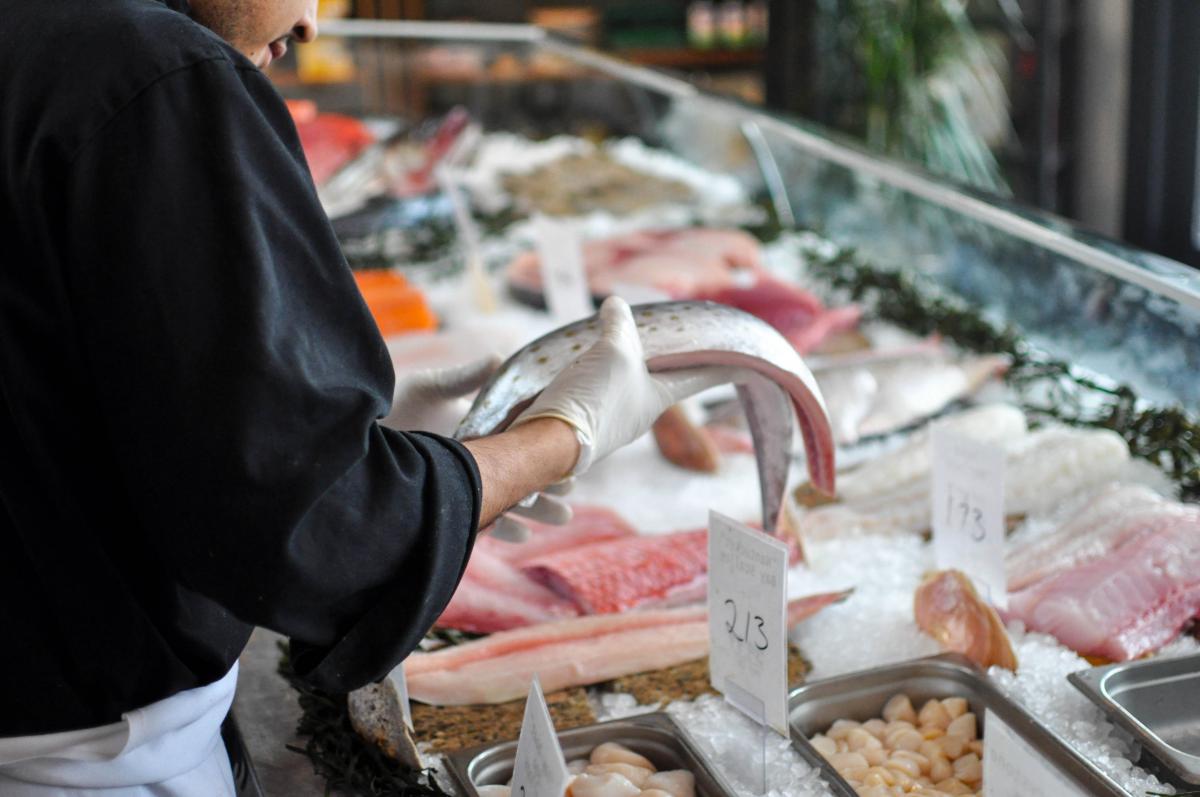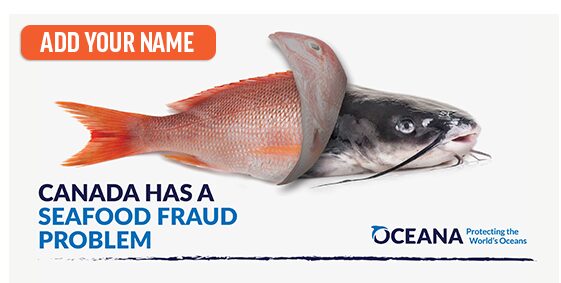August 9, 2019
Time is running out to make real changes to seafood labelling in Canada
Estimated reading time: 0 minutes
Last year, we reported that seafood fraud was rampant throughout Canada. We tested nearly 400 seafood samples in five cities across the country and found that a shocking 44 per cent were mislabelled.
Right now, the government is asking for public input about labelling standards in Canada. You can help stop seafood fraud and improve labelling by adding your voice here.
Since releasing the findings of our seafood testing last year, more than 25,000 Canadians have called on the government to put an end to seafood fraud. Oceana Canada met with Members of Parliament and Senators to discuss our findings and recommendations. While these conversations were encouraging, we have yet to see strong action taken to improve seafood labelling in Canada.
We know weak labelling contributes to seafood fraud. Without requiring detailed and accurate information, Canadian consumers are left with confusing labels that offer little to no information about the seafood they’re purchasing.
For example, current regulations for labels only require the last place the fish was processed to be listed, not the location where the fish was caught. This means a fish caught in Canadian waters, but processed in China, could be labelled “Product of China.” Frequent mislabelling makes it impossible for consumers to know how the seafood they are eating may be impacting their health and the oceans, not to mention whether they’re being overcharged.
 What makes this situation even more egregious is that some of Canada’s largest trading partners, such as the European Union, have rigorous labelling standards requiring catch location, country of origin, method of catch and scientific species name for all seafood. This means that consumers in other countries are given more information about Canadian seafood than that same product purchased right here at home.
What makes this situation even more egregious is that some of Canada’s largest trading partners, such as the European Union, have rigorous labelling standards requiring catch location, country of origin, method of catch and scientific species name for all seafood. This means that consumers in other countries are given more information about Canadian seafood than that same product purchased right here at home.
It’s time that changed.
Right now, the Canadian Food Inspection Agency (CFIA) is reviewing its labelling regulations, including for seafood. New regulations have been drafted, but they fall far short of modern labelling best practices.
The good news is that CFIA has opened a public comment period. This is our chance to ensure the government hears loud and clear that Canadians want stronger seafood labeling. But we need your help, the comment period is only open for a few more weeks.
Please add your voice and tell the federal government that it must modernize seafood labelling standards in Canada and help stop seafood fraud. Double your impact by sharing this message with friends and family – the more voices heard on this issue, the more likely the government will be to finally take real steps to address seafood fraud.


